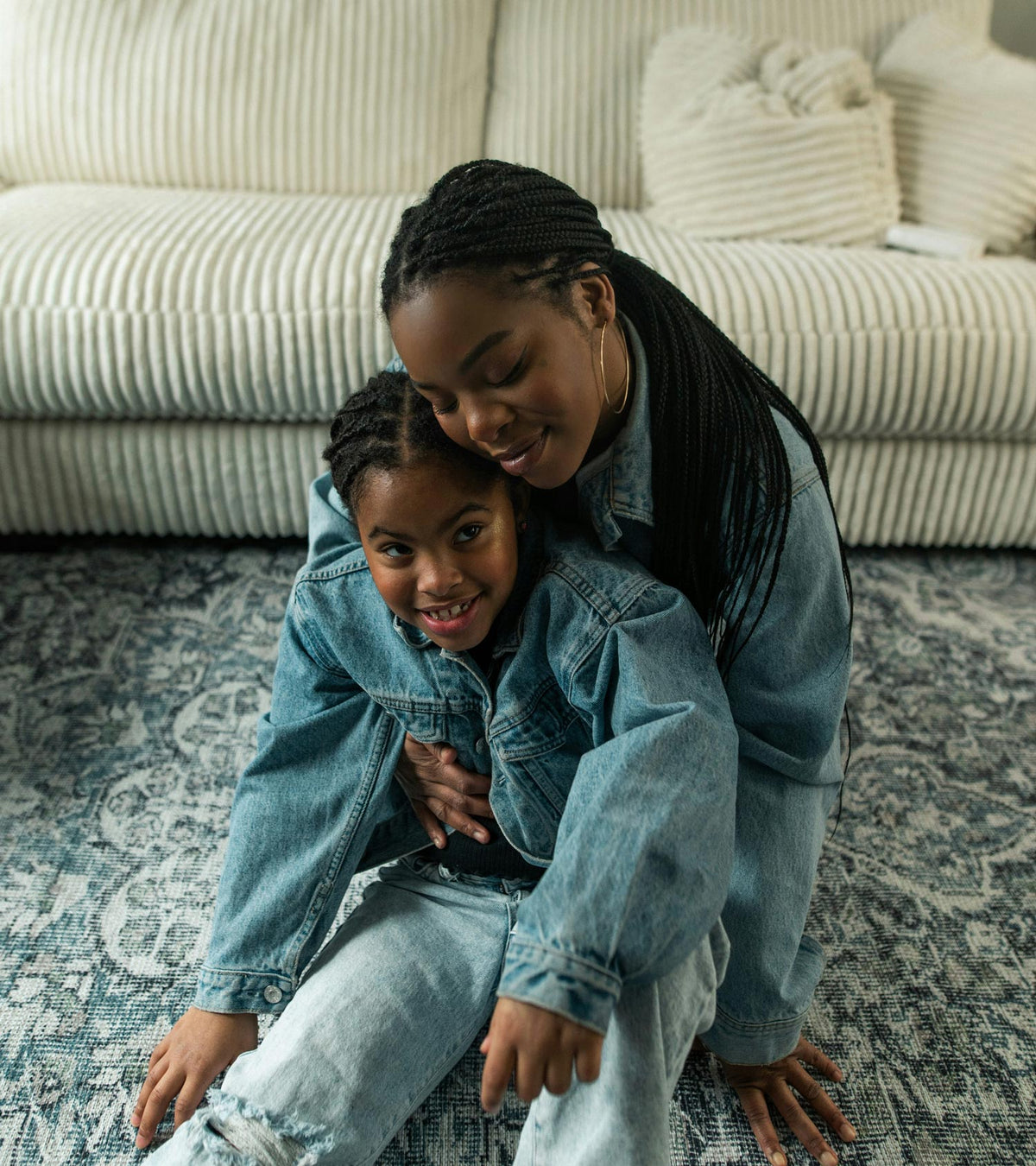
What We Need to Teach Our Daughters About Sex
|
Time to read 4 min
|
Time to read 4 min
Talking to our daughters about sex, boundaries, and their bodies isn’t just about them - it’s about us, too.
Because before we can teach them, we have to confront all the things we were taught (or not taught) growing up.
I was raised in a household where certain topics weren’t discussed. Like so many of us, I grew up in a culture where silence was safer, where avoiding discomfort was the norm, and where shame was an unspoken but ever-present teacher. We didn’t talk about boundaries. We didn’t talk about emotions. And we definitely didn’t talk about sex.
But just because you don’t talk about something doesn’t mean it’s not happening.
I remember growing up and feeling like sex was this otherworldly thing. I had no roadmap for intimacy, no language to describe what I wanted (or didn’t want), and no real understanding of my own body. I wasn’t even sure if what I was feeling was normal, because no one had ever told me it was.
And when no one talks about it, what you’re left with is secrecy. Silence. A deep fear that maybe something is wrong with you.
But now, as a mother, I refuse to pass that down to my daughter.
From the moment my daughter Ella could understand, I made a choice: I would name things for her.
At four or five years old, she knew the names of her body parts. Vagina. Vulva. Penis. We use real words, not cutesy, confusing nicknames. Because studies show that kids who know the correct names for their body parts are less likely to be targeted by predators. Because knowledge is power. And because I want her to be comfortable in her own skin in a way that took me years to achieve.
And when she asked me, “Mom, how do babies get made?” I didn’t panic. I didn’t tell her a story about a mystical stork in the sky. I gave her an answer she could understand: “There’s a sperm and an egg, and they come together inside a special place in the body called the uterus. The baby grows there for nine months and then comes out through the birth canal.”
She listened, nodded, and moved on.
Because when you normalize something, it stops being this big scary secret.
So many of us were raised in environments where curiosity was shut down. Where the simple act of asking was met with, “You don’t need to know that.” But here’s the problem: Kids do need to know.
When we don’t talk about sex, kids don’t stop being curious - they just go looking for answers elsewhere. Maybe they ask their friends, who know even less than they do. Maybe they turn to the internet, where the information is unfiltered and often harmful. Maybe they learn through experience - sometimes in ways that leave lasting scars.
And when they grow up, they become adults who don’t know how to advocate for themselves. Adults who don’t know how to say yes with confidence or no without fear. Adults who feel pressure to perform rather than to feel.
I don’t want that for my daughter. I don’t want that for any of our daughters.
For so many parents, the goal is just to delay things. To keep their daughters “pure” for as long as possible. To make sure they didn’t get that from me.
But what if the goal wasn’t just delay - what if the goal was preparedness?
What if we focused less on preventing sex and more on preparing our daughters to navigate relationships with confidence, agency, and self-respect?
Because here’s what I’ve learned:
But when you give them language - real language, honest language - they grow up knowing how to advocate for themselves.
That’s the goal. Not just delay. Not just avoidance. But confidence.
If we want to raise empowered daughters, we have to be willing to have uncomfortable conversations.
We have to talk about body autonomy.
We have to talk about consent.
We have to talk about pleasure - yes, pleasure - because if we don’t, the world will teach them that sex is something that happens to them instead of something they are an active participant in.
We have to talk about boundaries - what they are, how to set them, and that they don’t exist just for other people, but for themselves, too.
And most importantly, we have to let them know that they can always come to us.
Because if they’re not talking to you, they’re talking to someone else.
I know I won’t get everything right. None of us will. But what I do know is this:
My daughter will never doubt that she is loved.
She will never wonder if her voice matters.
She will never feel ashamed of the things that make her human.
And in breaking the silence for her, I’m breaking it for myself, too.
I discussed all this and more on the Lovers by Shan podcast, listen to the full episode here.
YOU MAY ALSO LIKE
